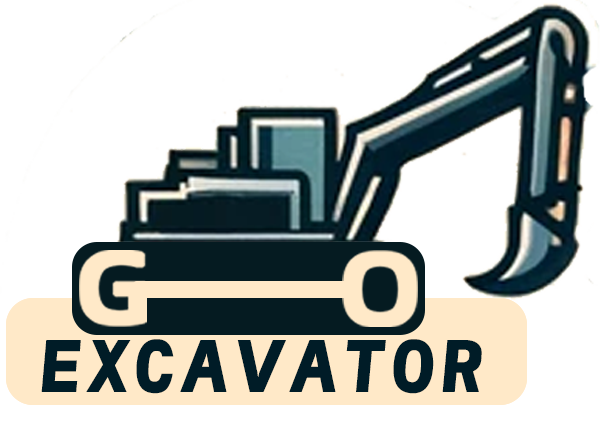
Mini excavators are invaluable pieces of equipment in construction, landscaping, and various other industries. Their compact size and versatility make them ideal for tasks in confined spaces where larger machines can’t operate. However, like all machinery, mini excavators require regular maintenance to function optimally and have a long service life.
I. Understanding Mini Excavators
A. What Is a Mini Excavator?
A mini excavator is a tracked or wheeled vehicle with an approximate operating weight from 0.7 to 8.5 tons. It’s equipped with a boom, stick, and bucket, and is primarily used for digging and earthmoving tasks. Its compact design allows it to perform tasks in tight spaces, making it a favorite among contractors and landscapers.
B. Importance of Regular Maintenance
Regular maintenance is crucial for the efficient operation of mini excavators. It not only ensures optimal performance but extends the machine’s lifespan, reduces downtime, and prevents costly repairs. Neglecting maintenance can lead to severe mechanical failures and safety hazards.
II. Common Maintenance Issues
A. Engine Problems
1. Oil Leaks
Oil leaks are a common issue that can lead to engine failure if not addressed promptly. They can be caused by worn seals, loose fittings, or damaged hoses.
Solution: Regularly inspect the engine for any signs of oil leakage. Replace worn seals and damaged hoses immediately. Ensure all fittings are tight and secure.
2. Overheating
Overheating can result from low coolant levels, clogged radiators, or faulty thermostats.
Solution: Check coolant levels regularly and top up as needed. Clean the radiator fins to remove debris and ensure proper airflow. Replace faulty thermostats and inspect the cooling system for leaks.
B. Hydraulic System Failures
1. Hose Wear and Tear
Hydraulic hoses are subject to high pressure and can wear out over time, leading to leaks and system failures.
Solution: Inspect hydraulic hoses for signs of wear, cracks, or bulges. Replace any compromised hoses immediately to prevent leaks and maintain system integrity.
2. Contaminated Hydraulic Fluid
Contaminants in hydraulic fluid can cause damage to pumps, valves, and other components.
Solution: Regularly check and replace hydraulic filters. Use only clean, manufacturer-recommended hydraulic fluid. Keep the hydraulic system sealed to prevent contamination.
C. Undercarriage Wear
1. Track Tension
Improper track tension can lead to accelerated wear of the tracks and undercarriage components.
Solution: Adjust track tension according to the manufacturer’s specifications. Regularly inspect tracks for wear and damage.
2. Sprocket and Roller Damage
Sprockets and rollers can wear out due to lack of lubrication or debris accumulation.
Solution: Clean the undercarriage regularly to remove dirt and debris. Lubricate moving parts as recommended. Replace worn sprockets and rollers promptly.
D. Electrical System Malfunctions
1. Battery Issues
Batteries can lose charge or fail due to age, corrosion, or extreme temperatures.
Solution: Check battery terminals for corrosion and clean them as needed. Test the battery’s charge regularly and replace it if it no longer holds a charge.
2. Wiring Problems
Damaged or loose wiring can cause various electrical issues, including starting problems and malfunctioning controls.
Solution: Inspect wiring harnesses for signs of wear, damage, or loose connections. Repair or replace faulty wiring to prevent electrical failures.
E. Attachment Wear and Damage
1. Bucket Teeth Wear
Worn bucket teeth reduce digging efficiency and put extra strain on the machine.
Solution: Inspect bucket teeth regularly and replace them when they show significant wear. Use high-quality replacement teeth to ensure durability.
2. Quick Coupler Maintenance
Quick couplers can wear out or become damaged, leading to attachment failures.
Solution: Regularly inspect quick couplers for wear and proper operation. Lubricate moving parts and replace any damaged components.

III. Preventative Maintenance Practices
A. Daily Inspections
Performing daily inspections helps identify issues before they become major problems.
Checklist for Daily Inspections:
- Check fluid levels (engine oil, coolant, hydraulic fluid)
- Inspect hoses and belts for wear or damage
- Look for leaks under the machine
- Test lights and indicators
- Ensure controls and safety features are functioning properly
B. Regular Lubrication
Lubrication reduces friction between moving parts, preventing wear and overheating.
Solution: Follow the manufacturer’s lubrication schedule. Use the recommended lubricants and grease all specified points.
C. Scheduled Servicing
Adhering to a regular service schedule keeps the mini excavator in optimal condition.
Solution: Conduct routine servicing as per the manufacturer’s guidelines, including oil changes, filter replacements, and system checks.
D. Proper Storage
Storing the mini excavator correctly prevents environmental damage.
Solution: Store the machine in a dry, covered area. If storing for an extended period, take measures like disconnecting the battery and protecting against moisture and pests.
IV. Tips for Prolonging the Life of Your Mini Excavator
A. Operator Training
Well-trained operators use the equipment more efficiently and can identify potential issues early.
Solution: Provide comprehensive training for operators on proper machine use and basic maintenance checks.
B. Using Genuine Parts
Using original equipment manufacturer (OEM) parts ensures compatibility and reliability.
Solution: Purchase parts and consumables from authorized dealers to maintain the machine’s integrity.
C. Keeping Detailed Maintenance Records
Records help track maintenance activities and identify patterns of recurring issues.
Solution: Maintain a logbook documenting all inspections, services, and repairs performed on the machine.
Proper maintenance of mini excavators is essential for safety, efficiency, and longevity. By understanding the common issues and implementing preventative measures, operators and owners can minimize downtime and maximize productivity. Regular inspections, adherence to service schedules, and proper operation are the pillars of effective maintenance.
A Comprehensive Guide to Buying a Excavator Second Hand
Purchasing a second-hand excavator can be a cost-effective solution for your construction or landscaping needs. However, buying used machinery comes with its own set of challenges and considerations. This comprehensive guide will walk you through [...]
Comprehensive Guide to Hyundai Mini Excavators: Features and Prices
Mini excavators have become indispensable tools in the construction and landscaping industries. Hyundai Construction Equipment, a global leader in heavy machinery, offers a range of mini excavators known for their reliability, efficiency, and advanced features. [...]
How to Extend the Service Life of Excavator Parts
Excavators are indispensable machines in the construction and mining industries. They perform heavy-duty tasks that demand robust components and meticulous maintenance. Extending the service life of excavator parts not only reduces operational costs but enhances [...]
Kymron Excavators: Innovative, Sustainable Construction Machinery
In the dynamic world of construction and heavy machinery, Kymron has emerged as a game-changer. Specializing in advanced excavator technology, Kymron is redefining industry standards with its commitment to innovation, efficiency, and sustainability. Company Overview [...]
Bulldozer vs. Wheeled Excavator: Which Machine is Better for Moving Soil?
Moving soil is a fundamental task in construction, landscaping, and earthmoving projects. Choosing the right machinery for the job can significantly impact efficiency, cost, and project timelines. Two of the most commonly used machines for [...]
Why Are Small Excavators Favored? A Comprehensive Guide
In the world of construction and landscaping, efficiency and versatility are key. Among the myriad of machinery available, small excavators have risen in popularity. But what makes them so favored? Introduction to Small Excavators Small [...]




